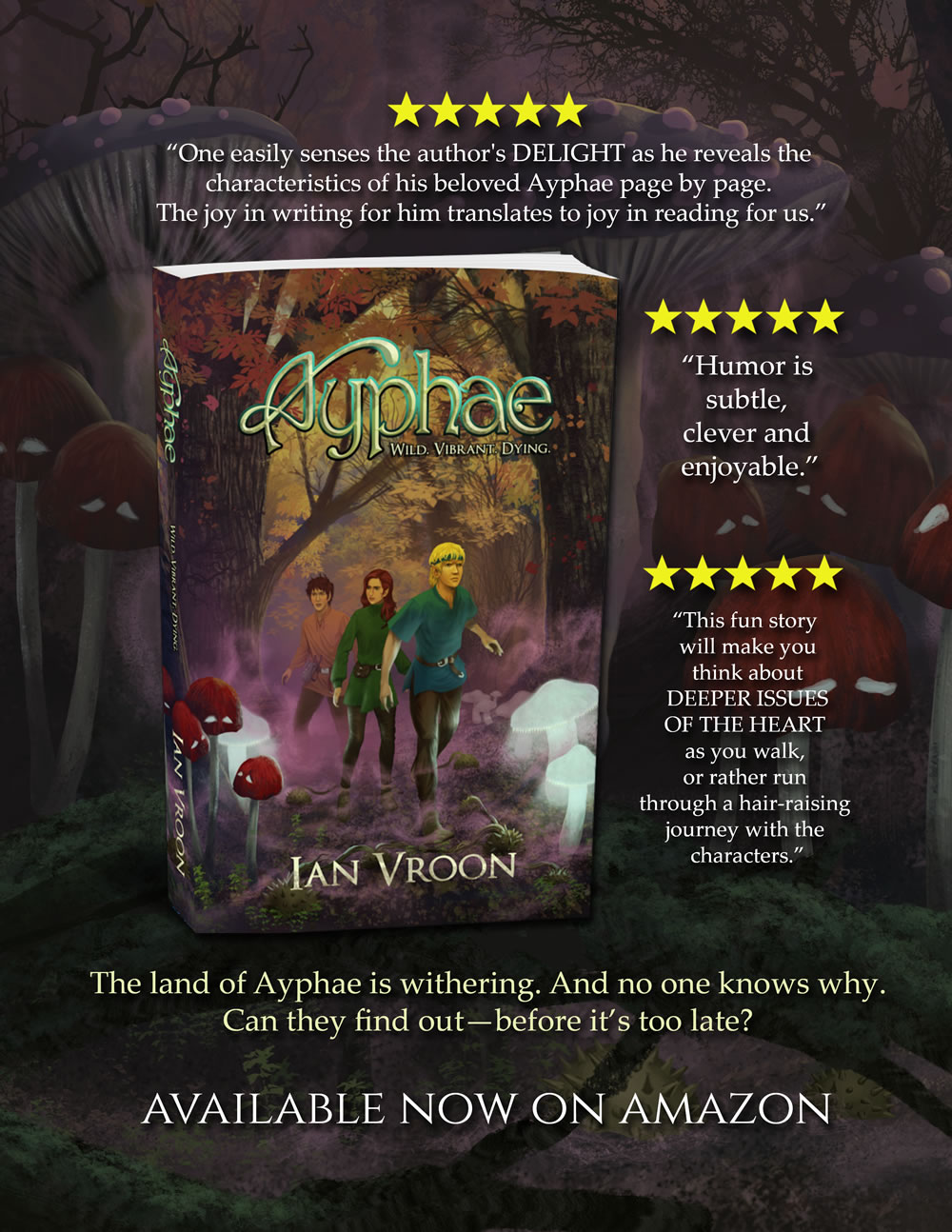Sex in the Story: How Far is Too Far?
Christians must apply wisdom to our entertainment, including stories that have elements such as sexual content, violence, or language.
To be sure, we have some freedom to engage such content. We also have different beliefs about this content. However, we shouldn’t have different motives. In all things we should seek to glorify God (1 Corinthians 10:31), and to use our God-given freedom to serve God rather than serving ourselves (Galatians 5:13).
But how can we tell the difference? We need a posture of intellectual and artistic humility to examine ourselves. We also need help from Scripture and other believers, to see if our position on such content overcorrects some other evil.
For example, some Christian authors suggest that they put sex, swearing, and violence into their fiction because “it’s real” and “because the church needs to address real people.” At first glance, this would appear to be a logical and even helpful purpose. But on closer examination, this choice may actually stem from the author’s dissatisfaction with other Christian traditions, such as cultural fundamentalism, after which the author overreacts into leniency.
Such reactionary “realism” gives little thought to the question: How far is too far? This question is especially vital when it comes to one element of “PG-13–rated” content that’s different from the others: sexual content, including nudity.
Violence and swearing provide struggles for some people. However, temptations from sex, especially lust, affect nearly everyone who has ever walked the planet.
In response, we could conclude this means our fiction should “be real” about sex. After all, we have an entire biblical book dedicated to marriage and sex: the Song of Solomon. So shouldn’t we discuss the topic even more openly in our fiction?
Well, yes and no. We must ask not whether but how we discuss these themes.
For example, it’s good and necessary to help teenage readers figure out biblical ways of dealing with sexual feelings. But since these readers are already being bombarded by sexual images and ideas, they’re at risk of falling into confusion about sex (and possibly worse trouble, such as with porn addictions).
An effort to . . . “Show, don’t tell,” can encourage a reader to flush hot and cold right along with the protagonist.
—Marian Jacobs
Something as simple as a book using internal and external sensations, in an effort to follow the old creative rule “Show, don’t tell,” can encourage a reader to flush hot and cold right along with the protagonist.
Sometimes explicit showing does not help readers better understand the character’s feelings, but simply exaggerates the temptation in readers themselves.
To see the difference, we can look to the Song of Solomon. Its poetry implies sexual interaction, and is so steeped in metaphors that scholars often debate much of the meaning of some verses. The book does celebrate sex and instructs us about a godly perspective on sex, but without tempting readers to lust.
So why does all his matter? After all, if we aren’t supporting an abusive industry (such as the porn or even R-rated film industries) that manipulate and objectify real actors, then isn’t it okay to read in a book about sexual feelings or even actions?
We can see two main problems with this conclusion.
First, Jesus taught that our heart’s desires, not just our outward actions, can be sinful: “You have heard that it was said, ‘You shall not commit adultery.’ But I say to you that everyone who looks at a woman with lustful intent has already committed adultery with her in his heart” (Matthew 5:27–28).
Second, when you read fiction about sex for your own private enjoyment, your inner thought life is creating new habits. In fact, by the simulation of reality through the story, you may literally rewire your brain—this is called neuroplasticity—to use another person for your own pleasure. Even without your knowledge or intention, this will make it easier for you to objectify someone in real life. It may even make it easier for you to make the seemingly large leap from imagined affair to actual affair.
Is this legalism or overthinking? No, because these are real risks to our souls. We cannot afford to be sentimentalist or naïve about how our—or our children’s—rewired brains, or distorted expectations, can shape our views of sex as we grow.
We should be deeply concerned about some Christians’ flippancy in speaking about these matters. That’s why I write this: from a heart of grief and loving concern for my Church family. We should not try to make law with our own personal standards. But we must also critique the subtext of any flippant responses that overreact against fundamentalism, rather than focusing on God’s glory and our need for holiness.
Let’s seek humility before the Lord and his word. Sure, we won’t all make the same choices. But we must all strive to glorify God in all that we do.








































I support this, many authors who support excessive violence or sexual content in their books do not argue anything in favor of holiness or pleasing God but only around what they think, what sells, what people want, what the same author wants… and I’m sorry but none of that justifies anything if it doesn’t glorify God.